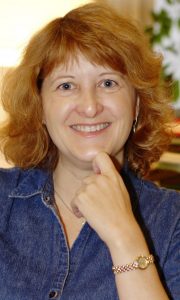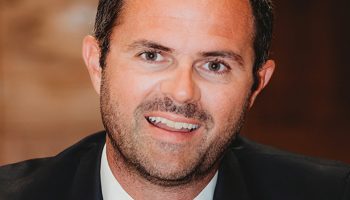As a theologian, Noreen Herzfeld knows that in the first century, people could see themselves in the image of God. But as a computer scientist, she has come to learn people in the 21st century see themselves in the image of another deity — the computer — a reality she has come to terms with through a growing list of sizable questions.

“These are big questions, and we have no easy answers, because we are dealing with things that are quite new,” Herzfeld said.
Herzfeld, the Nicholas and Bernice Reuter Professor of Science and Religion at St. John’s University and the College of Saint Benedict, will deliver her lecture “Tool, Partner, or Surrogate: How Autonomous Should Our Technology Be?” at 2 p.m. EDT Thursday, July 23, on the CHQ Assembly Video Platform with a lecture on the Week Four Interfaith Lecture Series theme, “Ethics in a Technologically Transforming World?”
It seemed to me that computers are at their most useful for us when they do things we can’t do: crank out the numbers,” Herzfeld said. “Why are we trying to replicate our own brains instead of working on something that compliments them?”
Herzfeld initially came to St. John’s University to teach her passion, computer science, but said she quickly became interested in investigating why people are trying to create “human-like artificial intelligence.”
“It seemed to me that computers are at their most useful for us when they do things we can’t do: crank out the numbers,” she said. “Why are we trying to replicate our own brains instead of working on something that compliments them?”
She didn’t have the background to “attack that question” as a computer scientist, she said, because it investigated human motivations rather than the technology itself. So, she began to study theology.
“I thought, ‘Where have I seen this idea of one being created in the image of another?’” she said. “That’s in Genesis.”
In her lecture, Herzfeld plans to explore the history of technology within the realm of theology, diving into what it means to be a moral agent and if computers can ever accomplish that “level of morality.”
“At what point does technology outstrip morality?” she said. “Is there a problem with the fact that we make technological advancements very quickly and yet we are evolving very slowly? Will it eventually get away from us?”
Some of the vast technological advancements are positive, according to Herzfeld. During the COVID-19 pandemic, for example, she said technology is “leading the way.”
“Scientists, right now, are throwing everything they’ve got at this virus and that includes artificial intelligence and robotics,” she said. “We are using these machines to help us understand the virus, to see if we can repurpose existing drugs and using robots to bring things to people who are quarantined. These are wonderful uses.”
Some of the uses, however, aren’t so wonderful. As a professor, she had to transition her classroom on Zoom in the middle of the spring semester and said it was a challenge to transcend the barriers technology set between her and her students.
“We need to be thinking about what an authentic relationship looks like when we are not meeting physically, when we are not directly face-to-face and when face-to-face is mediated by technology,” she said.
Through her virtual lecture, Herzfeld hopes to shed light on how citizens can be more “deliberate” with their technology usage. Ultimately, she wants people to think about which technologies they are going to use, which technologies they are not going to use and more importantly: why?
“With those we are going to use, maybe we can be more mindful about how we use them, how they might be having an under-the-radar effect on our relationships with other people, and how we think about ourselves and our place in the world,” Herzfeld said.
This program is made possible by “The Lincoln Ethics Series,” funded by the David and Joan Lincoln Family Fund for Applied Ethics and the Carnahan-Jackson Religious Lectureship.




